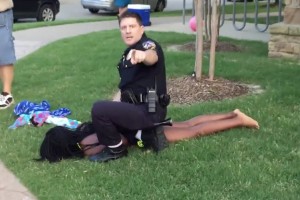
Nearly 60% of all Americans own a smartphone. That means that almost two out of every three people you see are a potential journalist. In fact, a Pew Research Center report suggests that around 12% of all news stories come from average citizens who witness or record newsworthy events. Often, such newsworthy events include law enforcement. So when a citizen feels the need or desire to start recording, one may have to ask himself is it lawful to videotape the police? What’s more, will this video evidence be admissible in court?
Recordings of Police May Be Usable for Video Forensics
Throughout the United States, different courts have had different things to say on whether or not one may record the police. For instance, the Ninth Circuit Federal Court, in 1995, ruled, “there is a First Amendment right to film matters of public interest”. Are police doing their job considered a matter of “public interest”? In 2000, the Eleventh Circuit Court ruled there is, “a First Amendment right, subject to reasonable time, manner and place restrictions, to photograph or videotape police conduct.” The Eleventh Circuit’s ruling seems to be more specific while the Ninth’s is somewhat ambiguous. However, in 2010, the Third Circuit Court ruled that “the right to videotape police officers during traffic stops was not clearly established.”
The Eleventh Circuit Court’s ruling seems to be clear that videotaping police is protected by the First Amendment, yet the Third Circuit Court’s ruling suggests that recording police is not protected at all. So which is it? And to make the question even more difficult, many courts over the years have echoed the sentiment that the right to record police is not “clearly established”.
[youtube]https://www.youtube.com/watch?v=CFOzqTDLleg[/youtube]
In the state of California, the law is clear: one may record police conducting their duties in public provided that they (the police) are not obstructed or impeded from performing their duties. That being the case, any video created or obtained that was done so in this manner would be admissible in court. This, then, begs the question, would recordings made surreptitiously be admissible? In many cases, such a recording may be considered wiretapping (particularly if the recording includes audio), thus leaving the recorder susceptible to prosecution. None the less, the recording may be admissible, but at a price of potential civil or criminal prosecution against the recorder!